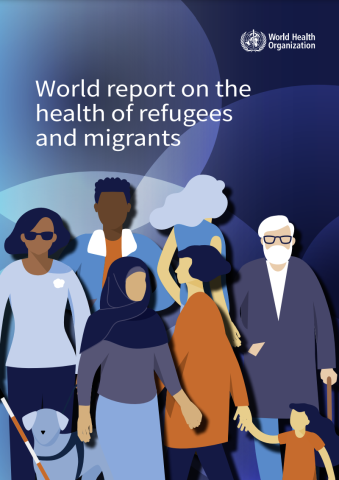Library
World report on the health of refugees and migrants
Worldwide, more people are on the move now than ever before, yet many refugees and migrants face poorer health outcomes than the host populations. Addressing their health needs is, therefore, a global health priority and integral to the principle of the right to health for all. The key is to strengthen and maintain health systems by ensuring that they are refugee- and migrant-sensitive and inclusive.
Health outcomes are influenced by a whole host of determinants. However, refugees and migrants face additional determinants such as precarious legal status; discrimination; social, cultural, linguistic, administrative and financial barriers; lack of information about health entitlements; low health literacy; and fear of detention and deportation.
This groundbreaking publication outlines current and future opportunities and challenges and provides several strategies to improve the health and well-being of refugees and migrants. It is an advocacy tool for national and international policy-makers involved in health and migration.
Evidence on the health of refugees and migrants remains fragmented – comparable data across countries and over time are urgently needed to track progress towards the health-related United Nations Sustainable Development Goals.
